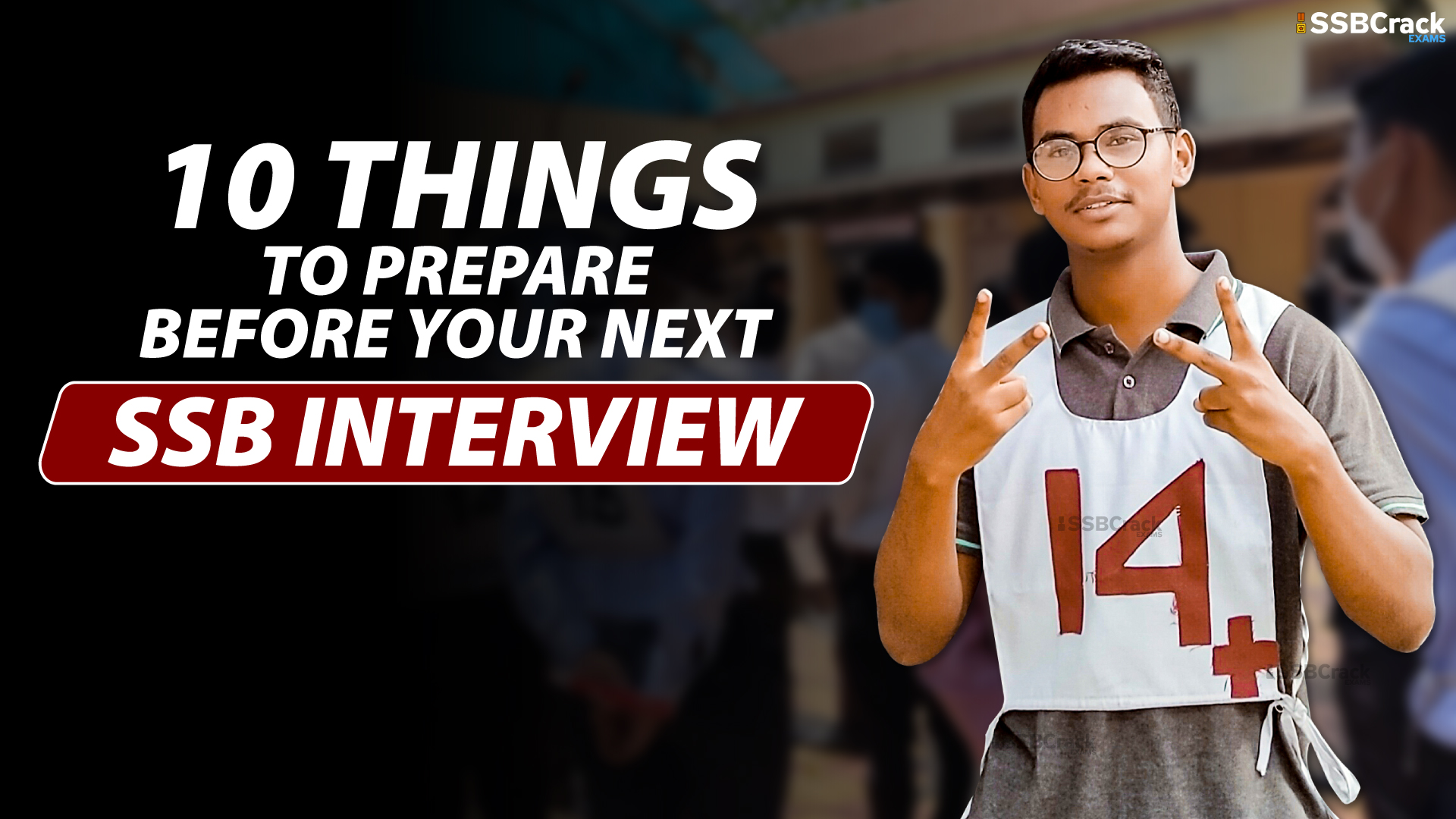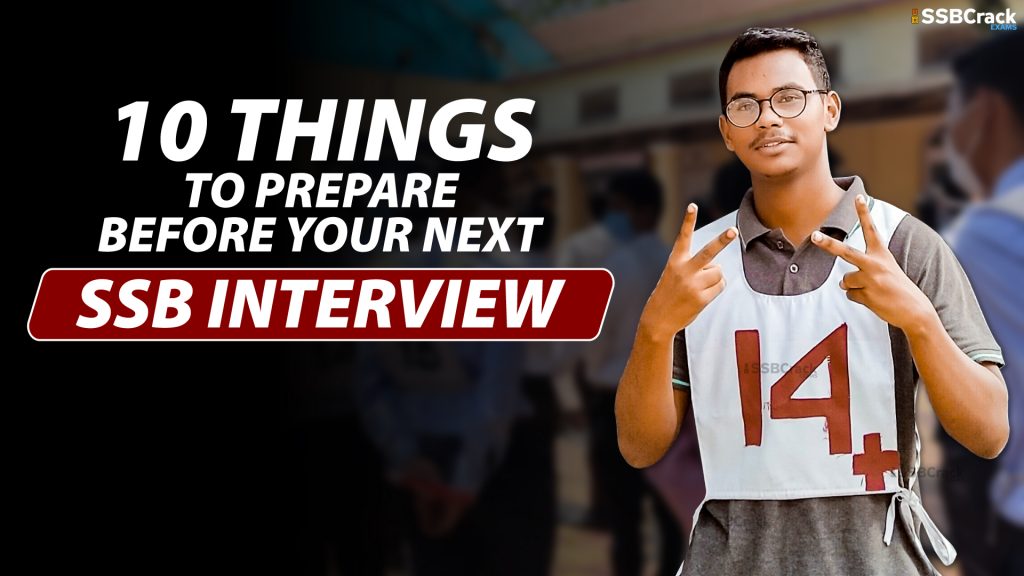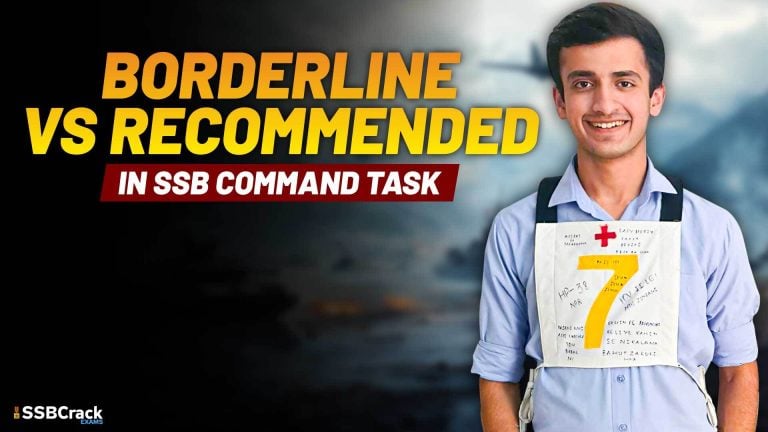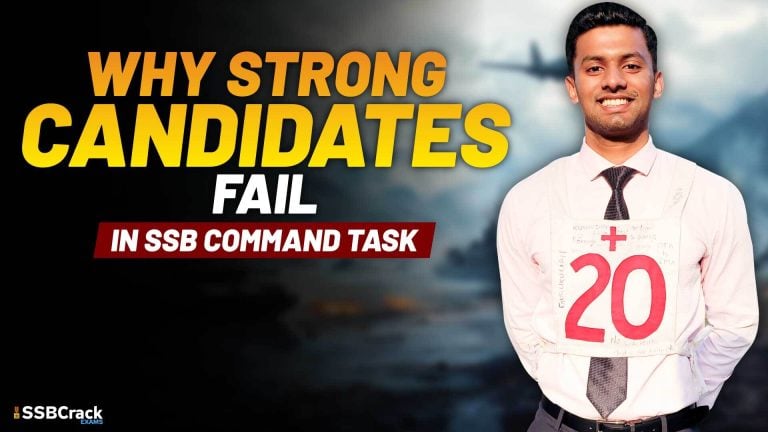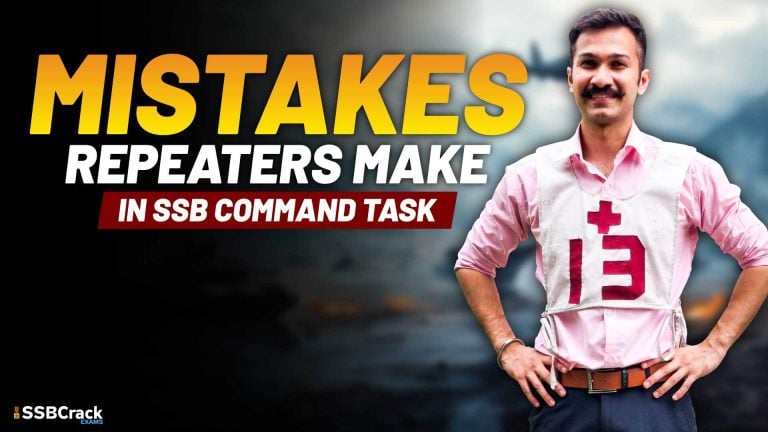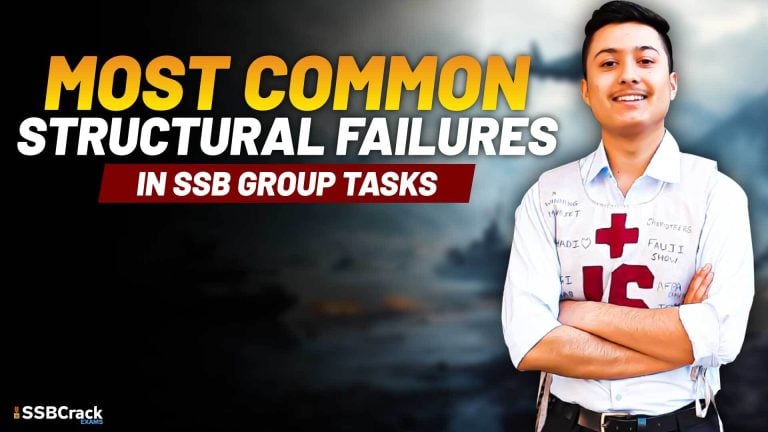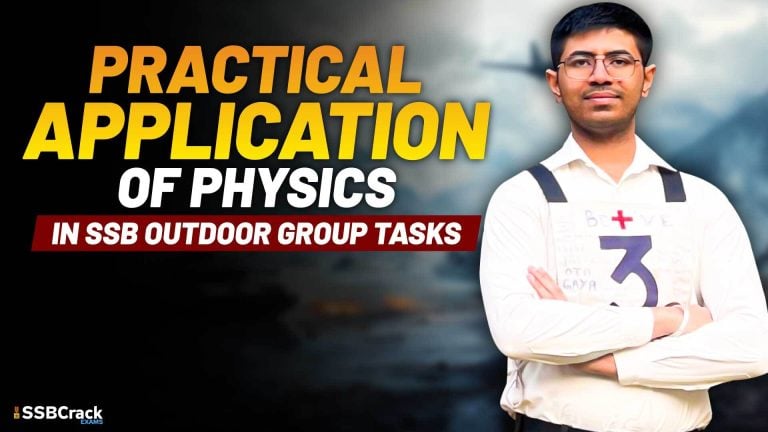Jai Hind future warriors, today we are going to discuss some tips on how to prepare for SSB Interview. We will cover the topic in following manner:
- Documents
- Dress Code
- Tips for Psych
- Tips for PI
- Tips for GTO
- Tips for Effective Communication Skills
- Tips for staying Physically Fit for SSB Interview
- Conclusion
- Download Our App to enroll yourself for SSB Interview online coaching.
- Book Your Slot for SSB Interview Online Class
First, I know this may sound too basic but there is no SSB Interview for you if you don’t carry the necessary documents. I have seen many candidates getting sent off even before screening just because they didn’t produce the required documents or the documents in the required format. I remember once two candidates were sent off within the first hour of reporting because both of them had brought the marksheets only and not the passing certificates. And more than 10 of them were sent off because they didn’t had the COVID negative reports in the required format. Hence as every SSB board/ entry has a different requirement of documents, go through your call letter line by line and don’t miss the important details. However, some basic documents which are required for any entry are:
- 10th class marksheet +passing certificate(keep at least 3 xerox copies of each)
- 12th class marksheet +passing certificate(keep at least 3 xerox copies of each)
Note:
In case you have submitted the marksheet to your college then you have to get a Bonafide Certificate signed from the principal. Bonafide Certificate is a proof that the required documents are with the institution and you may procure them if they are required(before commencement of course).Such candidates also have to make Self-Declaration certificate stating their proof of passing in the said-exam.
If you pursuing class 12th then you have to get a certificate duly signed by the principal stating the dates of your board exams and final results and assuring that you will be able to get the marksheets and certificate before commencement of the course.
- COVID-19 negative certificate from an ICMR approved lab not more than 48 hours old before commencement of journey
- UPSC Admit Card(for NDA/CDS entries)
- Other Cerificates attached with the call-up letter like Risk Certificate(for NDA Entry), No Claim Certificate,etc.
Secondly, again too basic but about the dress code of SSB Interview. Get the fitting dresses, don’t think about money here, because if you wear smartly it will give you confidence amongst your peers. You must have seen videos of academy training on Youtube, have you ever seen any GC with loose, shabby, clothes(uniform), or dirty shoes. No they are always shining, you have to become an officer, at least start thinking like one.
Here is a list of dress code and other necessary materials for SSB Interview
Prepare a time-table of your activities if you haven’t already, and keep extra time for backup due to some emergency like if you have to go to village, then how will you cope with the academic loss during that period. My advice would be start your day early with some physical exercise then give time to academics followed by sports(don’t miss that at cost of academics) and time for going out/spending time with friends/family. Utilise the spare time for following your hobby or interest, and not scrolling feed on Instagram. Make a separate time-table for holidays/weekends with more emphasis on outdoor activities.
Now I will list the steps you can take for preparation of the tests individually:
For Psych Tests:
- You should know that there are no absolutes / perfect answers/responses in psych tests. They are different for every individual, like if a stage is shown someone may write about winning a dance competition, while someone may write about organizing a competition, there are always different viewpoints because all of us have different life experiences. My advice would be to practice for them at home, and analyse your responses, whether it could have been more related to me or whether it could have been generic or whether the actions were sufficient, etc. Also, if you have an SSB buddy, get it analysed from them also to get their views. Remember never copy, there are always responses you can get from web on stories/words/situations, but always formulate your own, try to understand the actions and then write as per your own imagination but never copy. About SD, I will add it up with PI tips below
- In one of our interviews with a recommended candidate he advised a good tip he followed:
Write the stories, then make a table of all the 15 OLQs and after analysing the story, mark the OLQs you displayed through the story. Do the same for WAT and SRT. It is a bit time-taking, but yeas it’s worth it.
Note: Many people would say that this hampers the original thinking and not your true self, to them I would say every one of us have shouldered many responsibilities, participated in many activities, etc but when we write a story it’s natural that we forget some details of the work we did, which if mentioned would then portray our true self. These exercises mentioned above do this, I am not advising on creating stories out of blue, just that get those small details.
For Personal Interview
- Search for the PIQ form the web, get its hard copy and then fill all the details in it. Now sit in front of a mirror and start question yourself on the details you filled, for example if you wrote under responsibilities, some post, then what was your role, why were you given that post, what all you did during your tenure, what were the shortcomings, what problems were there and how you dealt with them, what all more could you have done, etc. Do this for all the sections, questioning and cross questioning yourself, if you are short on questions, you can get the commonly asked information questionnaire on our blog. Also, you should be aware of your strengths and weaknesses, and how are you able to utilise your strengths or how are you working to remove your weaknesses. Remember there are no specific best responses in personal interview, only the true responses (your own life experiences) are the best responses. Also have knowledge about the force you want to join, like if you want to join the Army, then which regiment do you aspire for, why so, its history, contribution latest defence equipment, deals, exercises, comparison with our neighbours, what role will you play in the the army, if not army then what? Etc.
- After this exercise, ask your brother/parents/SSB Buddy to take your mock interview, take their opinions and improve upon. The tip of recording your performance as in PPDT will also be beneficial.
- Also remember there is no use of memorizing responses related to your life, if you have followed the above exercise it would be enough.
- Now that you have done this self-introspection completely start writing your Self-Description in an organized way, because now your responses in interview will be coherent with what you write.
For GTO
- First, focus on your fitness. Although extreme level of fitness is not required, but in tasks like GOR (Group Obstacle Race) and IO (Individual Obstacles, you will need a lot of stamina, as it may so happen that immediately after the IO/GOR, lecturette/any other task will be conducted and if you are someone with less stamina you will be exhausted physically and that may take a toll on your performance. Also keeping yourself in shape helps you boost your confidence and project a positive vibe about yourself to the assessors.
- Anyways the academy you aspire to join maintains a very high standard of physical fitness for its cadets, so why shy away from it now.
- For this you can start gyming or if you have a ground nearby start going for runs. Try for swimming as it will also help you in the academy to great extent. Also if you are able to play team sports, it would be of best help to you, as nothing builds more personality than them, they bring out every aspect of you be it physical or mental toughness. It also builds the most important virtue required not just for SSB but also for professional and personal life: TEAM-SPIRIT.
- For GDs read newspapers, you can also follow any trusted news portal online, and explain to your brother/family/friends whatever you read and discuss with them their opinions, as it would give you a wide viewpoint.
- For GPE, there are numerable models online, find them, and write your responses. Make your own method like writing in a tabular form or to go paragraph wise. Read responses of other people and see what all did you miss or what could have been done in a better way. Having a SSB Buddy would be great.
- For PGT/HGT/CT/FGT, I would advise to learn the basics of tying the knots, and try to solve the obstacles (there are many pictures of them floating on the web). Remember not just you but almost your whole group becomes kind of clueless, from the third obstacles, but a calm mind will find the solution, there is no prize for the first solution, take your time(there will be) and find the best route for your group. Just keep trying.
- For Lecturette, speak in front of mirror neither more than nor less than for three minutes on important topics / issues you read about. Never speak randomly, rather plan it under various parts like Definition, Advantages, Disadvantages, Solutions(focussing on this part), etc and record your lecturette using phone/ any other device. Now notice your body language, voice modulation(if you sounded too monotonous), expressions, and keep on improving.
Improving English speaking and communication skills would be of great help to you. If you can explain your views properly with Hinglish to your group members, it would do. Even the assessors stress on speaking the language (Hindi/English) you are comfortable with. But remember this in a professional force and English is a required attribute in any profession. Its like there is no harm in learning this language so why shy away from it just because you are allowed to speak in Hindi in SSB interview. Some of my tips would be:
- Read newspapers or if you find them boring, start reading novels of your preferable genre.
- Make SSB prep buddies and converse with each other in English. Give your best, because initially it may feel weird and hard, but with time your fluency will improve.
- If you have time, stressing on time, watch some English series/documentary, as it will help you improve your pronunciation and clarity of voice. Again follow this tip only if you have sufficient time, otherwise watch English news.
- Don’t make those difficult words diary, dictionaries were made for a reason, no one wants you to be walking thesaurus in the SSB, rather focus on more speech and speech, be it with friends, family or in front of mirror
For more tips on improving communication skills click here: Best Ways To Improve Communication Skills For SSB Interview
Conclusion
For tips on physical exercises for SSB: Click Here
If you read this post and found the tips valuable, then use them and practice consistently, they are of no use if it’s just a one day/one week josh thing. For more posts related to defence exams and SSB interviews stay tuned.
To crack the SSB Interview, You can join our SSB interview live classes batch and we recommend you to Enroll SSB INTERVIEW ONLINE COURSE. Trusted by thousands of defence aspirants.
